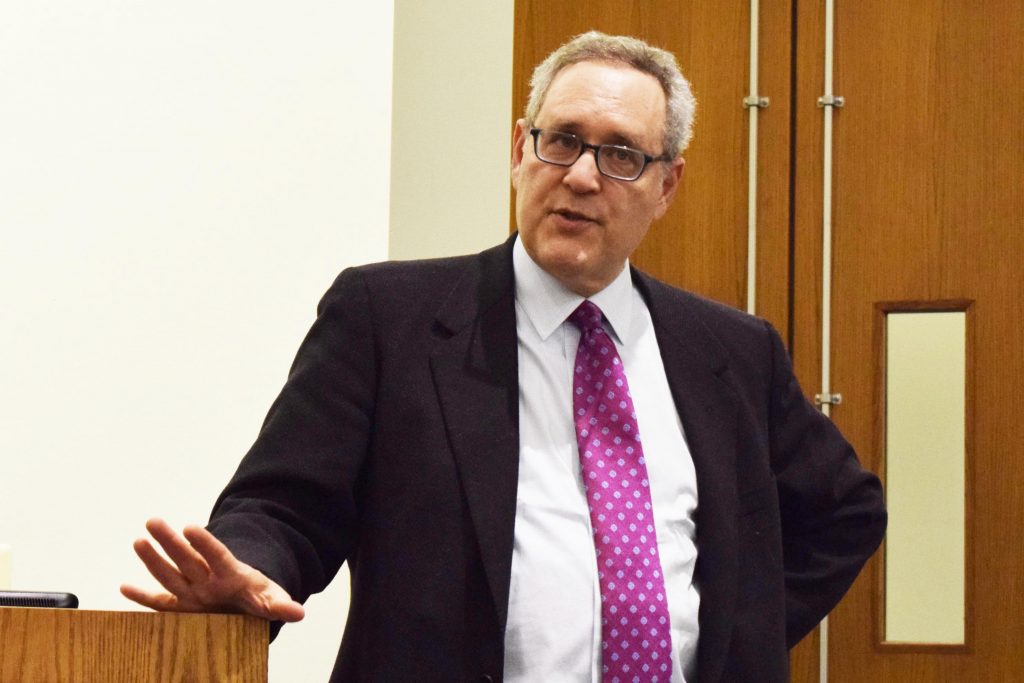We are, as constitutional scholar Michael J. Gerhardt put it, in unprecedented times. During a visit to BC Law on February 21, the University of North Carolina law professor discussed his recent testimony before Congress at the impeachment trial of President Donald J. Trump, providing perspective on the constitutional issues raised during the hearings as well as historical context. He also testified at the impeachment of President Clinton twenty years ago.
Gerhard is the Burton Paige Distinguished Professor of Jurisprudence at the UNC School of Law at Chapel Hill and the author of six books on impeachment. During his American Constitution Society talk, he outlined four major points.
In the first, he examined the narrative that the Democrats could have anticipated the outcome and therefore committed political suicide, spending whatever capital they had for no purpose. Gerhardt saw things differently. “The House was in a no-win situation,” he pointed out. “Never before in American history had a president solicited foreign interference in an election for his own benefit.” So, what was the significance of that, Gerhardt asked? The Democrat’s answer, he said, was, “We have to take a stand.”
The second argument was that the impeachment was all about partisanship. Gerhardt dismissed that theory on the evidence. While voting was almost entirely along party lines, “the information that came out was largely credible, and the witnesses were largely consistent,” he said, undermining the idea that this was simply the Democrats attacking a GOP president.
A third takeaway concerned the impossibility of impeachment. Gerhardt conceded that it is extremely difficult to reach the two-thirds threshold required to convict and remove a president. The Nixon-era fallback—that impeachment can nudge a president toward resigning—requires a sense of social responsibility that now seems quaint.
More compelling, said Gerhardt, is the fourth theory: “We are now seeing a president unbound.” That, in refusing to release information and keeping witnesses from testifying, the president is embodying the unitary theory of the executive branch. “Impeachments are not a check on that,” said Gerhardt. “Executive privilege is what he says it is.”
“What is the check?” Neither of the possible answers—elections, history—have yet been tested, Gerhardt noted, leaving the citizenry in unsettling times.


